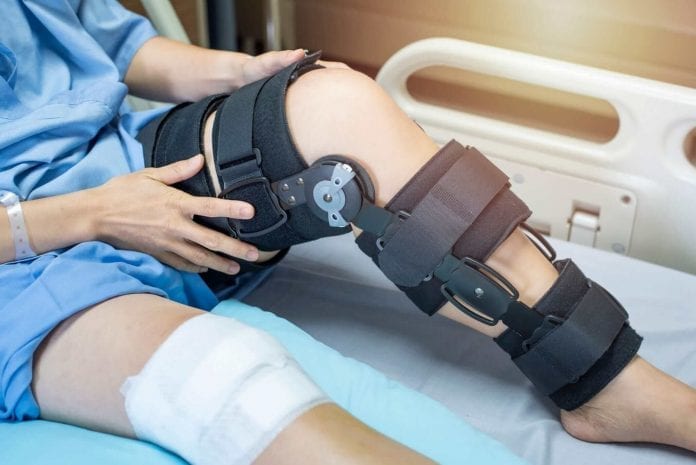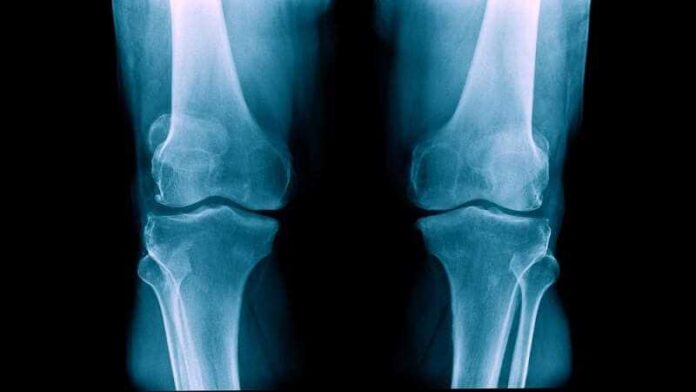Depending on the severity of the crash, you can either walk unscathed from the site of an accident or suffer prolonged injuries. 18-wheeler accidents can also be life-threatening in some cases. Common injuries that you may experience include whiplash, spinal cord dislocation, and knee injuries. When your vehicle is rear endedby a heavy-duty vehicle, the thrust can crush your legs into the dashboard’s underside, causing pain and discomfort.
However, sometimes the shock may induce numbness, and you may not notice the cuts and bruises even after several hours have passed. Hence, it would help if you rushed to a doctor to get a thorough examination done after a truck or 18-wheeler accident. Only a professional medical examination can identify any underlying issues that may intensify with time.
Common knee injuries after an 18-wheeler accident

Some common knee injuries that may occur after an 18-wheeler accident include:
Kneecap fractures
Also known as patellar fractures, kneecap injuries can result when the bones in your kneecap break into pieces, move out of alignment, or stick out through the skin. This type of injury can be excruciating and require immediate medical attention. Depending on the damage’s intensity, kneecap fractures may hinder your mobility, making it impossible to walk and move around.
It can take months for kneecap injuries to heal, and you may have to opt for expensive surgeries and splint to heal the broken bone. People who have osteoporosis are at a higher risk of getting their kneecap fractured during automobile accidents.
Anterior cruciate ligament injuries

The anterior cruciate ligament injury occurs when the anterior cruciate ligament is stretched or entirely or partially torn. Since this ligament plays a crucial role in providing stability to your knee joint, the injury can be severe and require invasive medical treatments such as surgeries to be treated. ACL injuries are graded on a scale of one to three, one being mild damage and three being a complete tear.
Dislocated knee
The impact of the crash can dislocate your knee, pushing the bone to slide outside the leg. Besides being extremely painful, a dislocated knee can keep you from standing up straight, walking correctly, and even aligning your portion. Common symptoms of a dislocated knee include swelling, tenderness, and pain.
Posterior cruciate ligament injuries
The posterior cruciate ligament is located at the back of the knee and connects the thighbone to the shinbone. This ligament plays a pivotal role in keeping the shinbone in place. While sitting in a bent position in a car, a sudden jerk from the rear-end can impact the posterior cruciate ligament and lead to severe injuries. If you hear a popping sound during the accident, the chances are that this ligament connecting your thighbone and shinbone has been torn and would require extensive treatment and therapy to restore. Other symptoms include instability of the knee and joint swelling.
Degenerative arthritis

A knee injury suffered during an automobile accident makes you more prone to developing degenerative arthritis. It’s a chronic disorder that damages the tissues and cartilages around a joint, creating difficulties in standing and walking. The pain caused by degenerative arthritis can hinder your daily activities and move to other parts of your body, including hips, knees, and feet. You may also experience swelling and pain in your neck, finger, toes, and lower back.
Torn meniscus
The two C-shaped cartilage pieces that act as a cushion between your thighbone and shinbone are designed to absorb shock. However, severe trauma can tear the meniscus, causing pain, swelling, instability, weakness, and stiffness in your legs. Depending on the severity of the injury, your doctor may prescribe conservative treatment such as applying iceand rest or surgical procedures to eliminate the condition’s effects.
Common symptoms of knee injuries
Sometimes, the accident’s shock can be so severe that you may ignore the common symptoms of knee injuries. Some of these may include:
Swelling
While some symptoms such as pain and inflammation may be immediately noticeable after the accident, other signs like swelling and limited mobility range may take a few days to transpire. Take careful notes of when you start to see any indication of swelling and bruising on your knee. Does it feel stiff at certain times of the day? Can you move your knee during physical exercise and exertion the way you used to before the accident occurred? These notes will help your doctor diagnose the problem more readily.
Form of pain you’re feeling
Mild forms of injury such as sprains and partially torn ligaments, will induce a different pain type than fractures and dislocated knee. Observe the kind of pain you’re feeling and distinguish between a sharp, stabbing pain from a dull and overall ache. The type of problem you experience directly indicates the injury you’ve sustained and can help your doctor devise a more effective treatment plan.
Limited mobility
Not all forms of knee injury will induce pain and swelling; some may have more silent impacts such as impediments in movement. After the accident, move your legs and feet to see if you feel any blocking or restriction. Mention any discomfort to your doctor to ensure a thorough diagnosis.
Act promptly after the accident
Physical therapy, medical treatment, and your broken car’s repair may cost you an arm and a leg. Moreover, the emotional and mental stress of lost wages, pain, and discomfort that you may have to experience due to someone else’s negligence may also put a damper on your psychological wellbeing. After visiting your doctor, the first thing that you should do is to reach out to a reputed automobile accident lawyer.
How can a truck accident attorney help?

A qualified truck accident attorney such as Lisa Douglas can offer you the legal assistance to deal with the insurance companies and court proceedings. They will help you get your due compensation to cover for medical treatment and lost wages. Insurance companies will do anything to reduce the amount of your settlement. This is why you should have experienced and trusted representation on your side to fight back with a solid case. Don’t waste another minute and contact a reputed attorney now.










